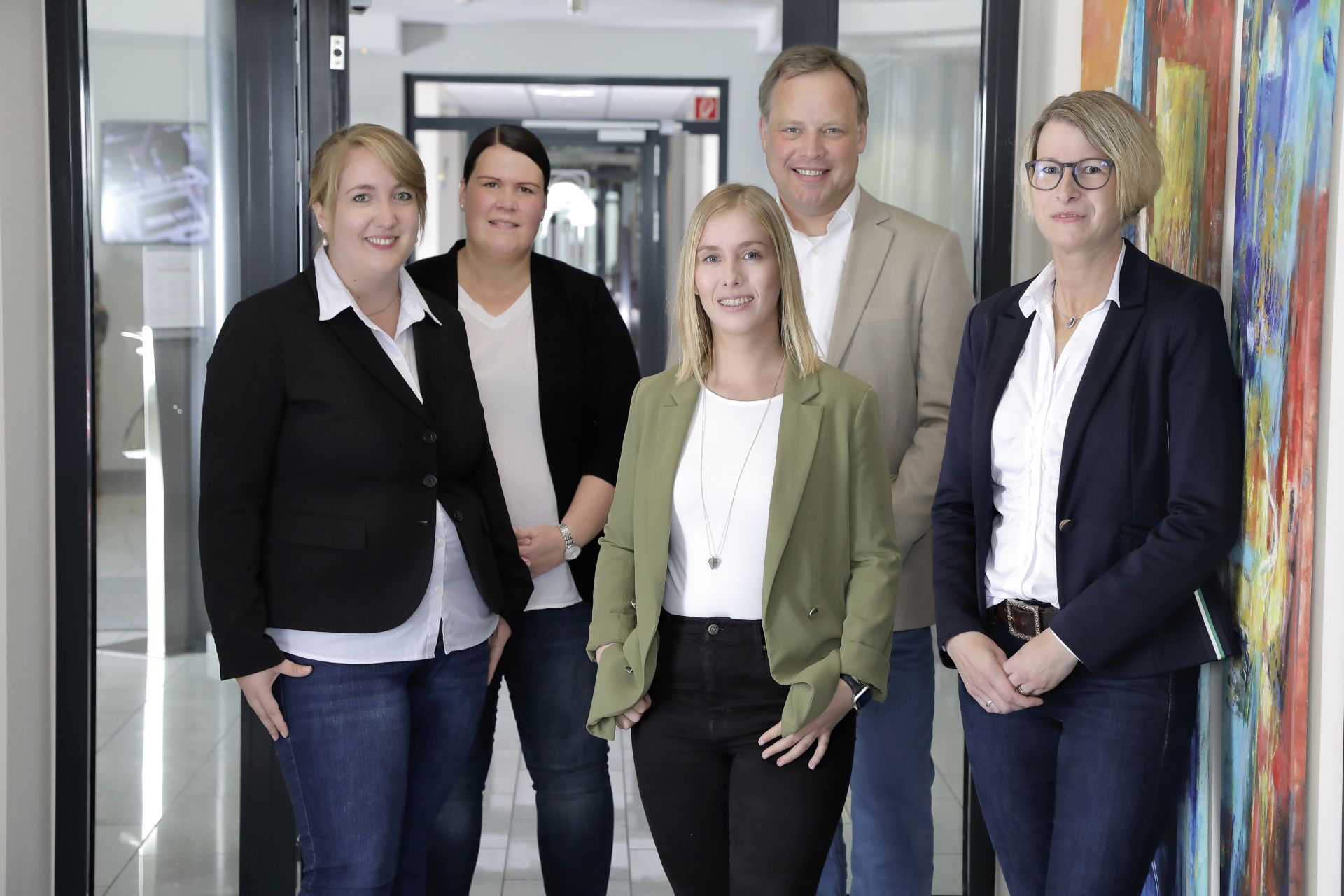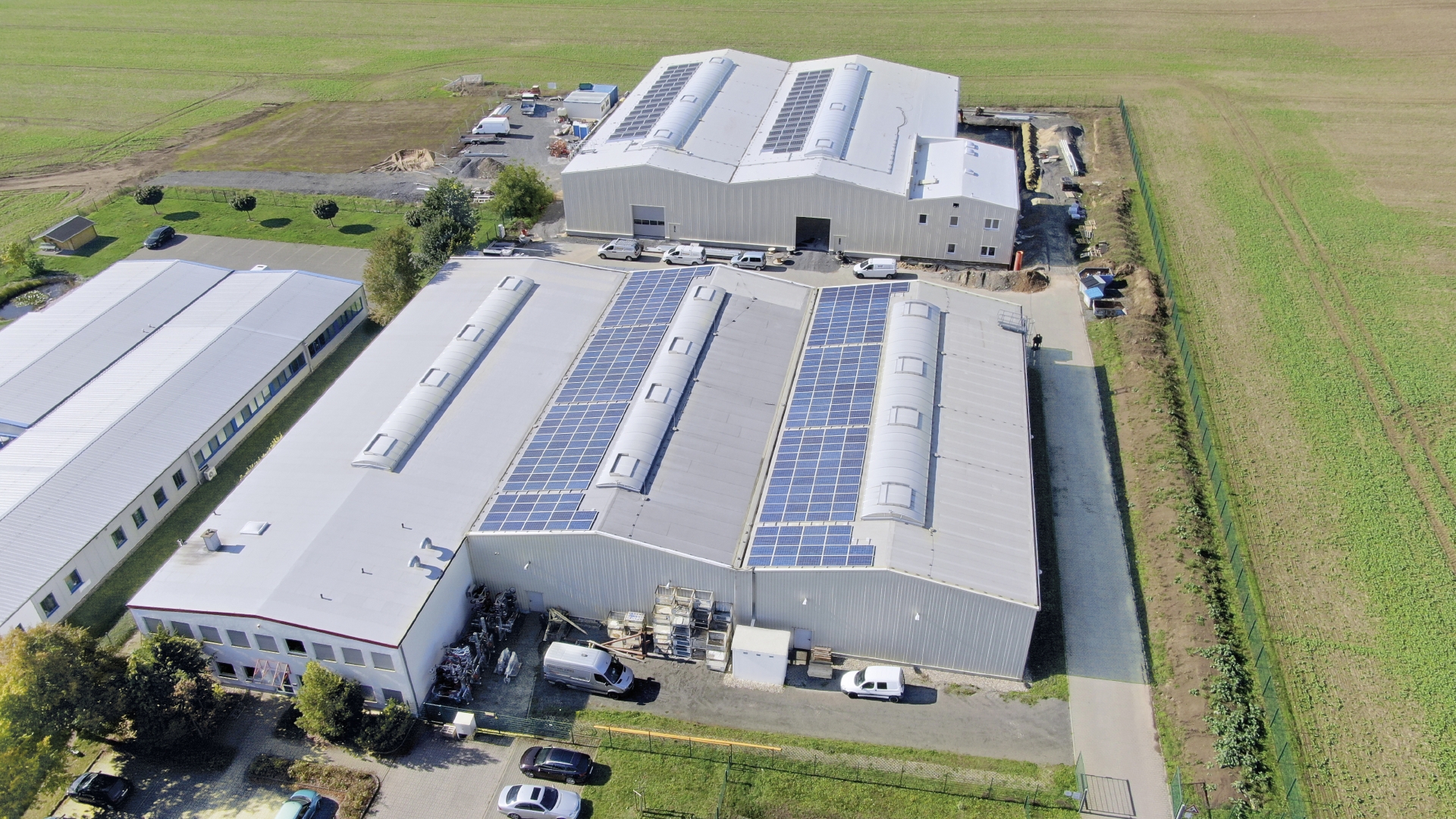The new normal

Working from home during the pandemic: Digital work environment at Vogelsang
The coronavirus pandemic has forced society and the economy to retool, and has set processes in motion that were previously only hesitantly initiated. This is also demonstrated by digital progress, which was proceeding rather sluggishly until the rapid spread of the virus, which is now driving it strongly forward. Vogelsang has been dealing with digitization in the company for several years and has already implemented numerous measures. Software tools support the processes in sales, production and design.The international company is also experienced in working at a distance and in virtual team exchange. Many employees in office-based sales support Vogelsang customers around the world from the Spanish branch in Barcelona. And Corporate Marketing team members control direct communication with all non-German-speaking countries as well as international marketing projects from their bases in Ireland and Spain.“Due to our international orientation, we have been very well positioned for videoconferencing and virtual communication for several years,” says Managing Director Harald Vogelsang. “This means the infrastructure and technical know-how were thankfully already in place. The challenge for us was to quickly
restructure many workplaces from the various company departments into home offices.”
Effective in the home office
As a result, the digital working world with home office and virtual communication has long been part of the
“new normal” at Vogelsang – with success. Acceptance of working in their home office is consistently very high among employees. This was demonstrated during the coronavirus crisis and confirmed in an internal company survey. For instance, 80 percent of Vogelsang employees surveyed stated that they like or prefer to work from home. Some 77 percent agreed, or somewhat agreed, with the statement that working from home is more effective. “Many employees can concentrate better at home because they are not so distracted by the background noise in the office and the corridor traffic,” says David Guidez, a Managing
Director of Vogelsang and initiator of the survey. A full 80 percent of the survey participants would like to
continue working from home.
Such a positive attitude towards the home office is confirmed by studies such as the sample from the health insurance company DAK Gesundheit, representative for Germany, conducted among around 6,000 employees in April 2020. Almost every other study participant perceived increasing digitalization at work as a relief. The majority of respondents (59 percent) stated that they work more productively in the home office than at the workplace office. Above all, the employees appreciate the time saved by no longer commuting to work. Overall, the DAK study reveals a high level of job satisfaction and a good work-life balance due to regular work in the home office.
“Watercooler conversations are missed”
Three quarters of the participants in the DAK study reported, however, that direct contact with colleagues and the opportunity to exchange ideas spontaneously in the team or with the manager was missing. “That also coincides with our survey results. Conversations around the watercooler are missed,” confirms Guidez. Some Vogelsang employees stated that they missed the social exchange with colleagues and that cross-departmental projects, joint design or finding solutions to complex tasks were carried out more effectively in the office.
As a closer look revealed, the internal Vogelsang survey also reveals major differences and differentiated
opinions on working from home between the individual departments. So-called interface departments such as marketing, which exchanges ideas with many company areas and often develops ideas in joint creative sessions, are more skeptical about working from home; 75 percent of the Vogelsang marketing employees surveyed said that they tend not to enjoy working from home. In contrast, the sales department sees the home office as 100 percent positive. The HR department at Vogelsang has therefore used the study results to formulate issues that must now be solved. “As HR managers, we are now faced with the challenge of integrating the positive aspects of the digital world of work into our regular operations and resolving the negative aspects through targeted measures,” says Stephan Illmer, HR Manager at Vogelsang.

Digitalization in the world of Vogelsang
In order for the digital working world to succeed in the long term, HR managers say three important factors
are important from their perspective:
- Communication
Regular videoconferences can be used to maintain contact with colleagues. To do this, Vogelsang uses the GoToMeeting with camera tool for virtual face-to-face meetings and uses it to hold videoconferences in large groups of 30 or more colleagues. - Virtual management
Working from home influences management culture. After all, communication that’s not face-to-face promotes distance. There is a lack of facial expressions and gestures, which are only partially perceptible via videoconferences and which are completely lost in a telephone conversation. Leadership at a distance is therefore more impersonal. On the other hand, working from home promotes the employee’s independence. Employees now clarify or decide little things that were otherwise asked out loud. It is therefore important to adapt the management style to this and to find solutions that make the (spatial) distance between manager and employee appear as small as possible.
The individual further development of employees is one important aspect in which it’s important to
convey appreciation of the employees just as tangibly as in personal exchange. The range of digital training opportunities is diverse and has the advantage of saving travel and accommodation costs as well as travel times. But networking also falls by the wayside after the training. - Culture
The coronavirus has forced Vogelsang and many other companies to introduce a home office culture within a very short time, even against some concerns; overall, however, the result is that it works.
Quality does not suffer due to working from home. With this positive experience, the mental change
away from a rigid presence culture towards a results-based culture is also successful. In order to sustainably anchor the digital world of work in a company’s culture, modern work equipment and smooth technology can only go so far; what’s essential is that superiors set an example by living this culture themselves.
Flexible recruiting throughout Germany
The digitization of the world of work and the resulting flexible work models such as in a home office also have great potential for attracting new employees. Because especially companies like Vogelsang, which are located in rural areas and not in metropolitan areas or in the environment of megacities, often disappear from the radar of young professionals for this reason alone. Stephan Illmer: “The location-independent work also makes us more flexible in recruiting. Because it enables us to recruit new employees beyond regional borders. This is a great opportunity for Vogelsang.”
The THINK RED! Editorial team talked to Stephan Illmer, HR Manager at Vogelsang, about what is important and what the future of work at Vogelsang will look like.
“The initial skepticism almost turned into home office euphoria.”
Vogelsang HR Manager Stephan Illmer on recruiting strategies, the workplace of the future and the digitization of HR
 THINK RED!: What does it take to stay ahead in the competition for skilled workers?
THINK RED!: What does it take to stay ahead in the competition for skilled workers?
Stephan Illmer: Nowadays, it is more the employer who vies for the applicant’s favor. The job advertisement is the application to the employee, no longer the other way around. Unique selling points are important here. The subsidy for company pension schemes or free drinks are already standard in general, so you don’t really pick anyone up with them anymore. But completely location-independent work, applications for positions whose company headquarters are hundreds of kilometers away, were previously unthinkable without a subsequent move. We make this possible and thus ensure a pronounced work-life balance for our future and existing employees.
So the home office is an integral part of your recruiting strategy?
Yes, because an initial skepticism has almost turned into a home office euphoria, which also benefits applicants and new employees. Many meetings are sometimes only held virtually, sometimes in a mixed form with employees who are currently working from home and who are still able to contribute. It is the mixture of presence and home office that promotes acceptance of the new. Working exclusively in the home office leads to social distancing from colleagues, but one to three days a week in the home office is feasible and a good middle ground. In addition to flexible working-time models, applicants are increasingly placing importance on the equipment of the workplace.
What will the future of the workplace at Vogelsang look like?
For us, a modern workplace includes modern hardware and software, for example the latest laptop or PC
models, two or more monitors, scanners and headsets. We have introduced the shared desk concept wherever possible. Two to three colleagues share a presence workstation and otherwise work in the home office. In this way, we implement the ideal mix of presence and home office organizationally. However, there will still be classic face-to-face workplaces, such as in production. Assemblies and repairs cannot be done virtually.
 The Human Resources team from left to right: Carina Siewering, Britta Ostermann, Christina Schlangen, Stephan Illmer and Anika Baumhöfer
The Human Resources team from left to right: Carina Siewering, Britta Ostermann, Christina Schlangen, Stephan Illmer and Anika Baumhöfer
Which digitization approaches do you still have in the pipeline for HR?
When I started working at Vogelsang in 2017, I took on the “New time recording and accounting” project and successfully completed it together with my employees. Today, we are able to record working hours completely digitally. This is enormously advantageous for working in the home office. Time is recorded on the PC via an employee portal or via a smartphone app. The classic way via the employee ID card and a time recording terminal is still possible. So every employee can use the time recording according to their needs. In addition, we are equipped with fully digital personnel controlling. This enables us to put all existing data in relation and evaluate it graphically using Qlikview. In addition, we use electronic applicant management, which enables the departments to access applicant data directly. We also use a digital job reference manager with direct digital evaluation by the supervisor. The digital travel expense accounting via the employee portal is being planned.
In your opinion, what is required in order to make the HR department fit for the future?
From a digital perspective, the HR department is already very well positioned. For example, we keep a digital personnel file. It also allows HR staff to work almost entirely from home. That was previously unthinkable with paper files. Certificates are loaded directly into the employee’s digital mailbox. We no longer have any paper forms and therefore much less bureaucracy. All digitization measures are in accordance with the GDPR.
 It is the mixture of presence and home office that promotes acceptance of the new
It is the mixture of presence and home office that promotes acceptance of the new
How will the HR department at Vogelsang develop?
In the medium term, the employees will continue their professional development and are striving for recognized degrees from the Chamber of Commerce and Industry, like for example the “HR specialist.” The
aim is to be able to support our colleagues even more intensively in their work, for example during interviews or when they are returning from sick leave.
In the course of the further development of the coronavirus situation, we also assume that we will be challenged with new requirements. E-learning will become extremely important in the future. Here we experience great support from the management. Because the Board is open to technical progress and is not afraid of the resulting costs. This cannot be taken for granted. For us, it means enormous flexibility and
makes work easier.
Further links
Discover our virtual showrooms

